AI Content Optimization: Smarter SEO for Better Visibility


Are you tired of staring at a blank screen, struggling to come up with fresh content ideas? 🤔 In today’s fast-paced digital world, consistently creating engaging content can feel like a never-ending challenge. But what if there was a way to make your content creation process easier and boost your productivity?
Enter the world of AI and Content Creation. 🤖✍️ AI is transforming how we approach content marketing by offering innovative solutions to old challenges. From brainstorming ideas to crafting engaging copy, AI is changing the game faster than we could have imagined. But with this rapid transformation comes both excitement and uncertainty. How can content creators make the most of AI while still keeping their unique voice and creativity intact?
In this blog, we’ll explore the exciting intersection of AI and content creation. We’ll dive into AI writing assistants, see how AI is shaping content strategies, and even uncover how it’s influencing visual content. Plus, we’ll address the ethical side of AI-generated content and take a look at what the future might hold for content marketing. So, buckle up and get ready to unlock your full content creation potential with AI! 🚀
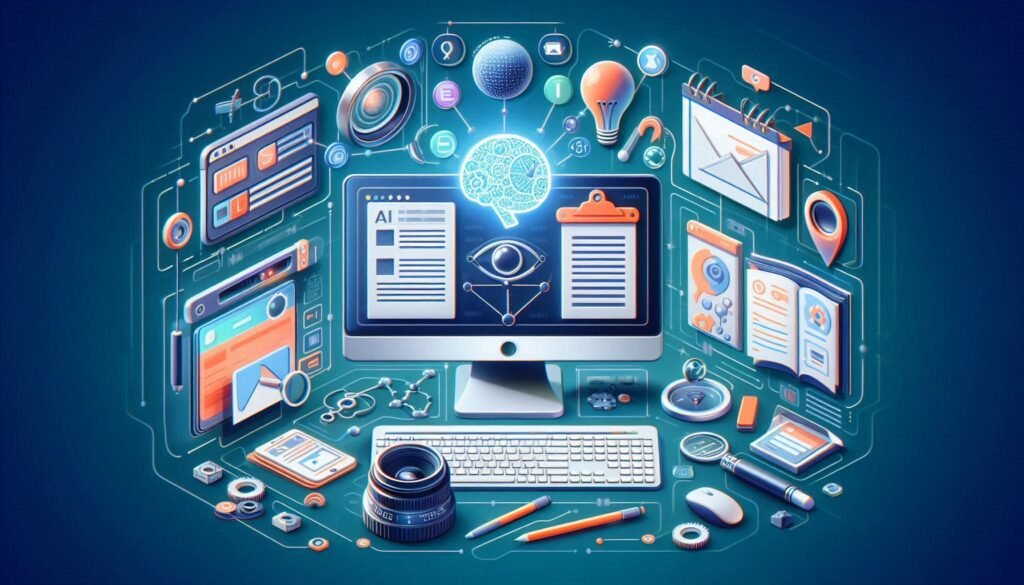

Understanding AI in Content Creation
Before we dive into how AI is changing content creation, let’s first break down what these AI-powered tools are and how they’re making a difference in the way we create content. This section will cover what AI tools can do, their benefits, and a few challenges that come with them.
What Are AI-Powered Content Tools?
AI-powered content tools are software programs that use artificial intelligence to help with content creation, optimization, and distribution. These tools are designed to make creating content faster and easier, while also offering insights to improve quality and effectiveness. AI tools can analyze huge amounts of data, find patterns, and even write human-like text based on the information they process.
Some standout features of AI content tools include:
- Automated content creation
- Language translation
- SEO optimization
- Sentiment analysis
- Personalized content for specific audiences
- Predicting how well content will perform
Let’s compare how traditional content creation stacks up against AI-assisted approaches:
| Aspect | Traditional Content Creation | AI-Assisted Content Creation |
| Speed | Time-consuming, manual process | Quick content generation |
| Scalability | Limited by human resources | Easily scalable |
| Consistency | Varies based on individual writers | Maintains a consistent tone and style |
| Data Analysis | Limited to human interpretation | Advanced data processing |
| Personalization | Hard to personalize at scale | Tailored content for specific audiences |
| Cost | High long-term costs | Lower long-term costs after initial investment |
| Creativity | High potential for original ideas | Struggles with truly novel concepts |
While AI tools offer many advantages, they’re not here to replace human creativity. Instead, they help content creators work smarter and faster.
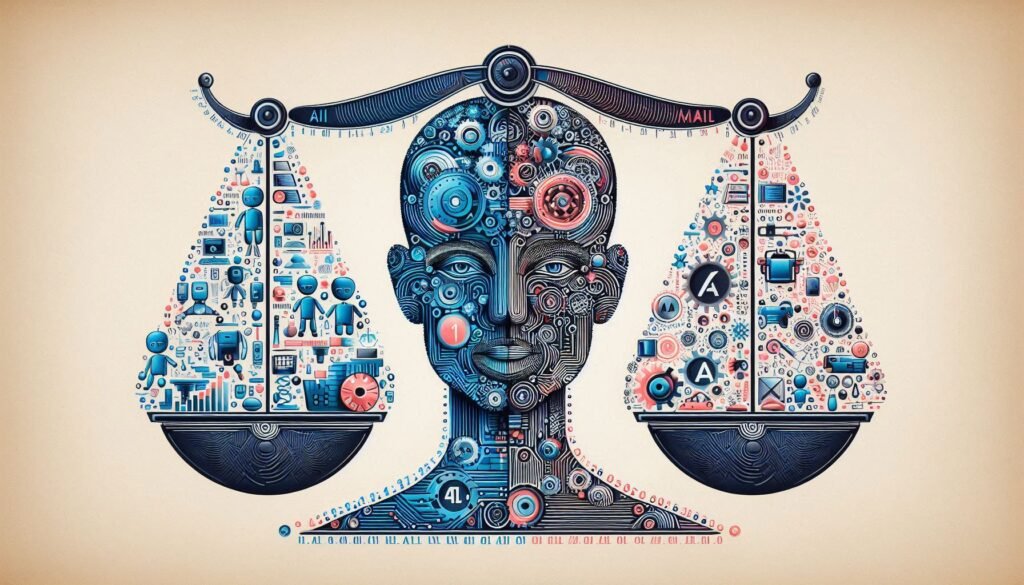

Current Limitations and Challenges
AI in content creation is impressive, but it does have its limitations. Here are a few things to watch out for:
- Lack of creativity: AI can combine existing data, but it may not come up with original or groundbreaking ideas.
- Missing nuance: Sometimes, AI misses the subtlety or emotion in language that makes content feel truly human.
- Ethical concerns: There are still ongoing discussions about whether AI-generated content should be disclosed and how to handle potential biases in algorithms.
- Brand voice: AI tools can struggle to perfectly capture a brand’s unique style and voice.
- Over-reliance: Depending too much on AI may hurt human creativity and critical thinking.
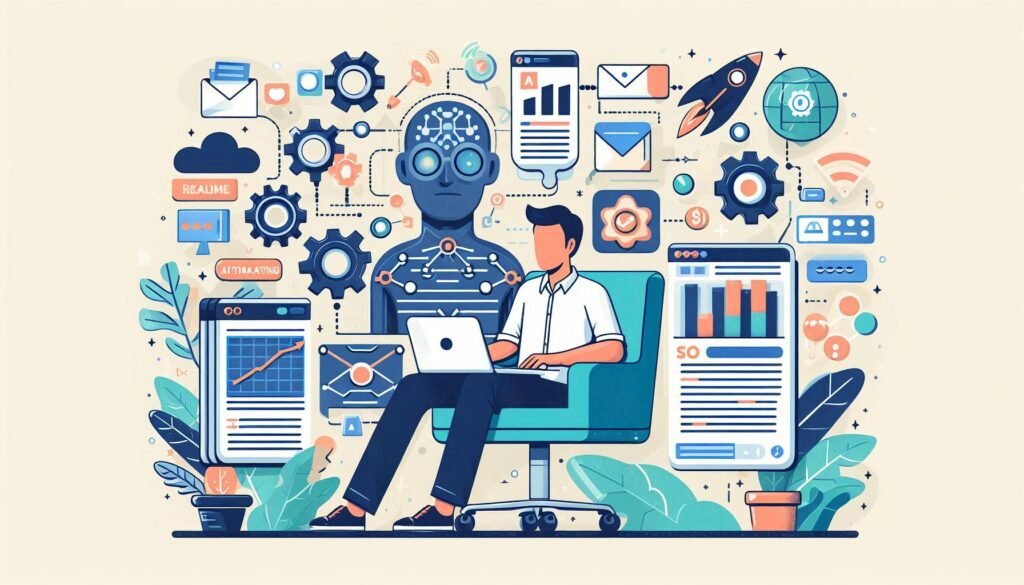

Benefits for Content Creators
Despite these challenges, there are plenty of reasons why content creators are turning to AI tools:
- Increased productivity: AI can create content much faster than humans, meaning more content in less time.
- Better SEO: AI tools can help optimize content for search engines by suggesting relevant keywords and improving structure.
- Data-driven insights: AI analyzes data to provide insights on audience behavior, helping you tailor your content.
- Cost-effectiveness: After an initial investment, AI tools can save money by reducing the need for human resources.
- Personalization: AI makes it easier to personalize content for different segments of your audience, boosting engagement.
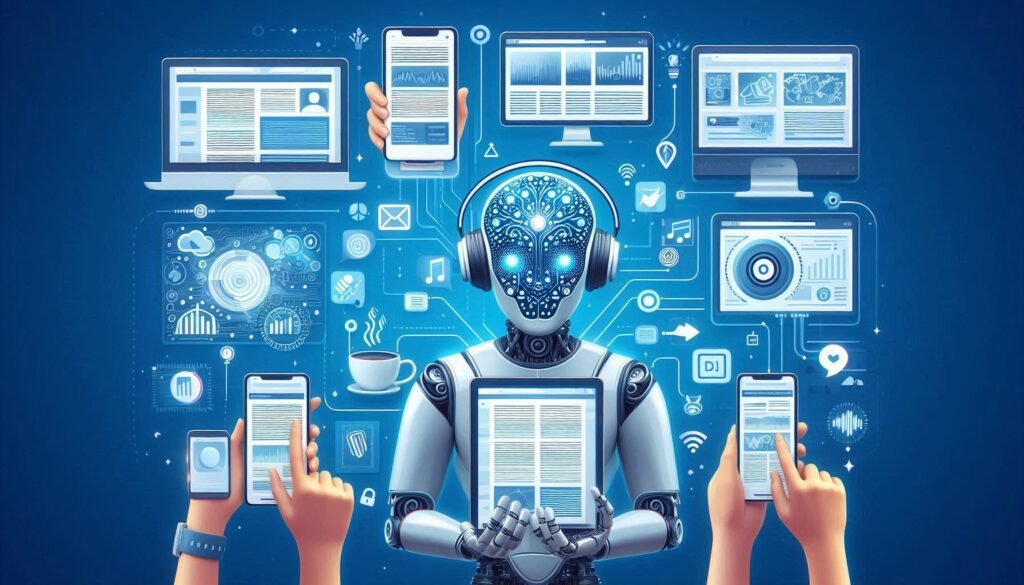


Types of AI Content Generation
AI can do much more than just write blog posts. Here’s a quick look at different types of content AI can generate:
- Text Generation: Short-form content like social media posts, or longer pieces like blogs and reports.
- Visual Content Generation: AI can create images, infographics, and even help with video editing.
- Audio Content Generation: From text-to-speech to music composition and podcast scripting.
- Data Visualization: Creating charts and graphs to represent data visually.
- Multilingual Content: Automated translations and localized content for global audiences.
AI has many use cases, making it a versatile tool for content creators across industries.


AI Writing Assistants
One of the most exciting developments in AI is AI writing assistants. These tools are helping content creators craft high-quality content with ease.
Customizing Brand Voice
AI writing assistants can be fine-tuned to capture your brand’s unique voice. Whether your brand is formal and professional or casual and playful, AI tools can be adjusted to fit.
AI can:
- Adjust the tone of the content
- Use industry-specific language
- Mimic sentence structures based on your previous content
This makes it easier to maintain a consistent brand voice across all content.
Improving Quality and Consistency
AI writing assistants don’t just speed up the process—they also help improve the quality of your content. They can catch grammar mistakes, suggest better word choices, and even improve readability. With real-time SEO suggestions, AI ensures your content is optimized from the start.
Boosting Productivity
Imagine cutting your content creation time in half! AI writing assistants help generate content drafts, offer research support, and even provide suggestions for content repurposing. By handling the heavy lifting, AI lets content creators focus on creativity and strategy.
Popular AI Writing Tools
Here are a few popular AI writing assistants:
- Jasper (formerly Jarvis)
- Grammarly
- Writesonic
- Copy.ai
These tools are great for marketers, bloggers, and businesses looking to streamline content creation.



AI in Content Strategy and Planning
AI doesn’t just help with writing—it’s also changing how we plan and execute content strategies. AI can analyze search trends, suggest content ideas, and predict how well a post will perform before it’s even published.
- AI-driven Keyword Research: AI can identify high-performing keywords and help you discover niche topics.
- Content Optimization: AI suggests how to improve your content length, readability, and structure to rank higher in search results.
- Performance Prediction: AI tools can predict how well your content will perform, helping you prioritize which pieces to focus on.
Visual Content Creation with AI
AI is also transforming visual content creation. From AI-generated images to video editing, the possibilities are endless.
- AI-generated images and graphics: Tools like GANs (Generative Adversarial Networks) can create unique images based on text descriptions, saving time and resources.
- Automated design tools: AI tools like Canva and Adobe Sensei are making it easier for anyone to create professional-quality designs.
- Video editing: AI helps with automated video cutting, audio enhancement, and even subtitling.
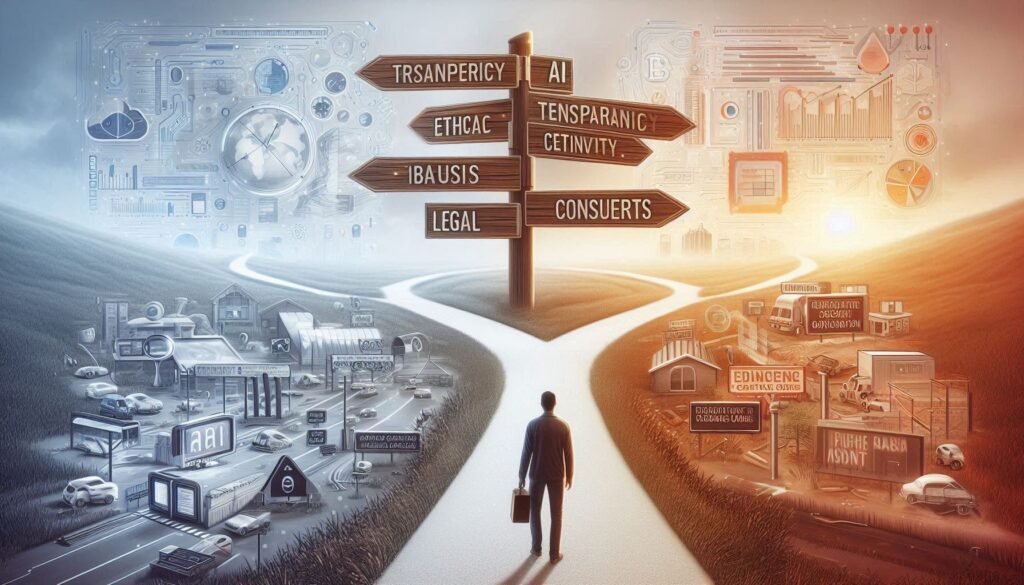

Ethical Considerations in AI Content Creation
As AI tools become more advanced, it’s important to think about the ethics behind using AI for content creation. Here are some key areas to consider:
- Copyright and ownership: Who owns AI-generated content, and how can we ensure originality?
- Bias: AI models can sometimes carry the biases found in their training data, affecting the content they generate.
- Transparency: Should readers know when content is AI-generated?
- Authenticity: Can AI truly capture the authenticity and emotional depth that human creators bring?
By being mindful of these ethical concerns, we can use AI responsibly and maintain trust with our audiences.


The Future of AI in Content Marketing
Looking ahead, AI will continue to play a huge role in content marketing. As AI tools become more sophisticated, they’ll offer even greater insights and automation, but human creativity will always remain essential.
The future is about collaboration between AI and humans. AI can handle repetitive tasks, analyze data, and generate content ideas, while humans bring creativity, emotion, and personal experiences that make content truly engaging.
AI has revolutionized content creation, offering powerful tools to enhance efficiency and creativity. From writing assistants to visual content generators, AI is changing the game. But as we embrace these new technologies, it’s important to remember that AI works best when paired with human creativity. By collaborating with AI, content creators can unlock new levels of productivity while still preserving the unique human touch that makes content truly resonate.
Invention for Eye Care, can this eye drop remove the eye glass? Read here
Small Business Content Marketing in 2024 Dowload the full report here



